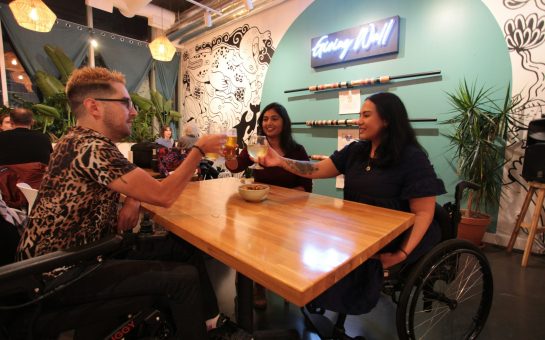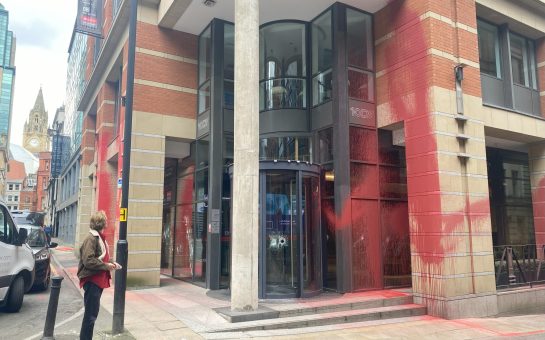Prime Minister Boris Johnson’s Sunday announcement that lockdown measures were being weakened has prompted a change in focus for the GMCA from containment to law and order.
New cases of the coronavirus and deaths are steadily falling week on week, as are cases requiring ICU care, down to 91 from 116.
Hospital admissions per day is one metric higher this week than last, so there is not a strong downward trend across the board, however, the R-0 in the North West is below one, at a median of 0.73.
Mayor Burnham suspects that given Manchester was behind the curve nationally, and the virus has been linked with deprivation, this may be a higher figure than other regions of the UK, but any R-0 below one is positive.
With 338 social care homes having reported outbreaks of the virus, there is at least some reassurance that care homes have sufficient supplies of PPE to contend with outbreaks.
Supplies of PPE are now steady, and stockpiles are the healthiest they have been at any point during the outbreak.
Despite this, policy regarding care homes has been dubbed a “failure at a national level” by the GM Mayor, and this is partly due to inadequate sick pay for care workers, some of whom have continued to go to work with symptoms as they cannot afford to take time off.
Testing also testing remains a troublesome area, where it is feared that high targets are being chased for their own sake, at the expense of a coherent long-term strategy.
Given this mixed picture of current conditions, Mayor Burnham is worried that the alteration to the “stay at home” messaging by the government has “come too soon.”
During lockdown, GMP issued only 300 fines for people breaking national guidelines, and now that people have more leeway, things will be more difficult for police.
SIMPLE MESSAGE
Chief Constable Ian Hopkins anticipates that police will have new challenges to face, including groups congregating in public, and a rise in anti-social behaviour.
It will be “more challenging as we move forward,” he said.
Even before the lockdown measures were officially changed on Sunday, members of the public were anticipating the change; over 1,000 large gatherings were documented over the bank holiday weekend.
The police have had to respond to reports of house parties being thrown throughout lockdown, with last weekend particularly busy, and although the police cannot enter buildings, they can issue closure notices.
Hopkins emphasises that under weakened lockdown rules, congregations in houses are still forbidden, and anyone attending social gatherings is at risk of spreading the disease.
“The message is quite simple. We are still in the middle of a health crisis, and people are still dying. Please act responsibly.”
Now that more consistent data is available, it has also been confirmed that there has been a 1% increase in reports of domestic violence since the lockdown was imposed.
This works out at about 11 incidents a day, although the usual caveats remain – it is possible that incidents are going unreported due to a lack of time alone away from an abusive partner, for instance.
Hopkins continues to assure the public that sources of legal and medical aid continue to be available to victims of domestic abuse.
Meanwhile, “Project Restart”, the ongoing deliberations on how or if the football season will be completed, is offering policing challenges of its own.
Hopkins worries that teams playing at any venue, neutral or not, would attract large crowds, and enforcing social distancing in large groups is a big challenge.
He highlights particularly contentious and important games remaining between close rivals, such as Liverpool v Manchester City, which he anticipates would prompt social congregations.
Mayor Burnham has voiced his hopes that any continuation of the regular season would put the health and safety of spectators and participants ahead of any financial concerns about fulfilling television contracts, and confirmed that as far as the GMP are concerned, any restart of the season would pose too great a health risk.
Burnham has also confirmed that there was a small increase usage of both cars and public transport since lockdown measures were compromised.
In an economic sense, this is encouraging news, as it may take some pressure off Metrolink, who have struggled since lockdown measures vastly decreased custom.
However, the Mayor worries that enforcing social distancing on buses and trams will be difficult, as the change in messaging came too quickly for alterations to be made to schedules.
With buses and trams still running at intervals of 20 minutes, journeys may be too crowded, increasing risk of transmission between passengers.
“The government needs to support us to increase public transport capacity so we can safely support people’s return to work,” Burnham said.
‘INCOMPREHENSIBLE’
Councillor Bev Hughes has further criticism of the government for its approach to easing lockdown measures for schoolchildren.
She has said that beginning with the youngest children, who will struggle to practise social distancing compared with mature students, is “incomprehensible”.
“I cannot begin to understand the logic behind that.”
Given a lack of regular testing, there is much we don’t understand about how this virus functions, and the fact that schoolchildren remain uniquely resistant to infection is still mysterious.
It is possible that children are more likely to become asymptomatic carriers of the virus, and sending them back to school merely turns schools into factories for the virus, endangering teachers and pupils’ relatives.
In sum, Mayor Burnham stresses that although he understands the pressures on the economy caused by this pandemic, he fears that it is far too soon for Manchester residents to abandon lockdown measures.
It is especially important for those who feel they must return to work to continue to practise social distancing, and where possible, use masks and other protective measures to reduce the spread of the virus.
Resources continue to be available online for those seeking official guidelines for businesses, and the latest medical advice.



